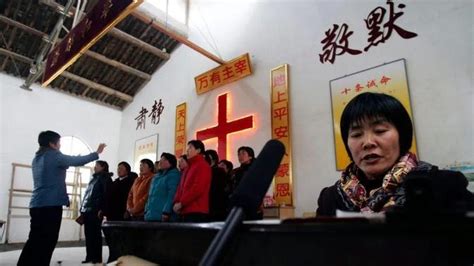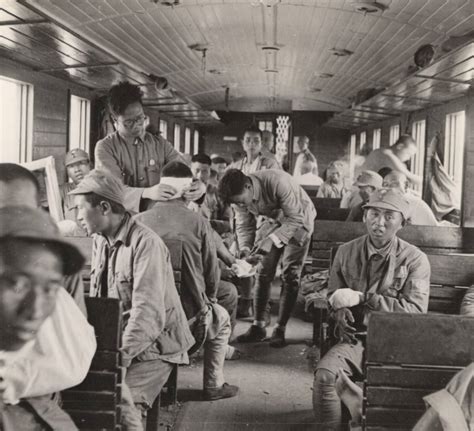who are the oprresors of christians in china ,China’s War on the Cross ,who are the oprresors of christians in china, ChinaAid, an international non-profit Christian human rights organization based in the United States, released its Annual Persecution Report for 2022. The report on Chinese Communist Party’s (CCP) oppression of Christianity details numerous cases of persecution of Christians in China in 2022. Goyard Bag Prices in the US (2024) The table below represents the prices for Goyard most popular handbags in USD in 2024. On average, a Goyard bag retails for around $2,500 and .

Christian persecution in China has taken on a new level of severity in recent years, with reports detailing how the Chinese government is stepping up efforts to impose tight control over religious practices. In 2024, an 85-page report published by China Aid Christians shed light on the increasingly oppressive environment for Christians living in the country, revealing disturbing trends in the Chinese Communist Party's (CCP) aggressive enforcement of the "Sinicization of religion" policy. This policy seeks to bring all forms of religious practice in line with Chinese national interests and ideologies, promoting the dominance of the CCP over any religious affiliations that might challenge its authority.
The report noted that religious minorities, particularly Christians, are bearing the brunt of this crackdown. Authorities have escalated their attacks against Christian communities across the country, as the CCP strengthens its grip on churches, clergy, and even religious education. The policy has sparked widespread fears of the complete erasure of Christianity as a faith practice in its traditional form, with a growing number of Christians across China being subjected to harassment, imprisonment, forced indoctrination, and destruction of religious symbols.
The Sinicization of Religion and the Rise of Persecution
In 2018, President Xi Jinping introduced the "Sinicization of religion" policy, which mandates that religious groups must align their practices with Chinese culture and values, ultimately subordinating religious beliefs to the power of the state. Under this policy, religious practices are redefined not by theological principles but by their conformity to the Chinese Communist Party’s political agenda. The key tenet of the Sinicization movement is that religion must support and enhance the CCP’s leadership and national interests.
For Christians in China, this has meant a systematic crackdown on their religious freedoms. Authorities have demanded that churches remove Christian symbols, such as crosses, and replace them with portraits of Xi Jinping. Additionally, churches are required to incorporate government-approved content in their sermons and religious gatherings.
The implementation of the Sinicization policy has been particularly evident in the closure and demolition of churches across China, with authorities even going so far as to seize church property. This was not just limited to unregistered "house" churches but also officially sanctioned Protestant and Catholic congregations that had long existed within China’s strict regulations. The most visible manifestation of this policy has been the destruction of crosses on church buildings, symbolizing a blatant attack on Christianity in China.
One of the most high-profile events that captured global attention was the 2018 demolition of the “Sanjiang Church” in Zhejiang province, a large Protestant church that had stood for more than a decade. The demolition of this church was part of a broader pattern where churches in Zhejiang, known for their large Christian population, were being torn down or forcibly closed by authorities.
But the destruction of physical spaces is only one facet of the broader crackdown on Christianity in China.
Restrictions on Religious Education and the Persecution of Minors
In addition to controlling the worship of adult Christians, the Chinese government has extended its restrictions to children. The Sinicization policy mandates that minors be excluded from religious services and religious education. This policy has been described as a direct attack on the transmission of the Christian faith, as it seeks to prevent younger generations from being exposed to Christianity in any form.
The restrictions on children attending church services or participating in religious education are widespread. Authorities in many regions have begun raiding homes and churches to prevent children from attending Bible study classes or Sunday services. Churches have been required to implement strict measures to ensure that minors do not enter places of worship. These measures have included surveillance systems to monitor who is attending services, making it extremely difficult for young people to practice their faith openly.
The government’s actions are not confined to the church; they also extend to Christian schools and institutions. In many areas, Christian schools have been forced to close, and Christian religious education has been banned or severely restricted in public schools. The state has instead promoted government-approved educational materials that push socialist ideology, replacing religious teachings with communist propaganda.
This aggressive approach to religious education is part of a broader campaign to control all aspects of Chinese society, particularly the ideological education of the younger generation. The Chinese government views the infiltration of Christianity into educational institutions as a threat to its control, as it believes that religious values are inherently at odds with the political and social order the CCP wishes to enforce.
Forced Indoctrination of Clergy

who are the oprresors of christians in china $2,260.00
who are the oprresors of christians in china - China’s War on the Cross